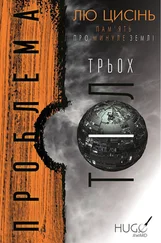Today was a group match, and Wei Ming and his young comrades had spent the night poring over the battle plans. The previous day they had watched their company’s Second Platoon use the country’s most advanced antitank missile, the HJ-12, which their adult instructors had raved over, in particular the three types of guidance it utilized, including its cutting-edge visual pattern matching. In the game itself, all three of the missiles Second Platoon had fired were jammed and went wide of their targets, and only five soldiers survived. The rest were taken down by the guns and cannons of three Leclercs. The M1A2 tanks that Wei Ming’s platoon now faced had an even more powerful jamming system, so they had decided to use the more outdated, wire-guided HJ-73 missiles. They had less range, but were resistant to jamming, and the warheads had been improved to increase the armor-penetration capability from 300 mm to 800 mm.
Now their preparations were complete. Three antitank missiles were set up in a line in their small base, no grander-looking than three white-painted wooden pegs. The Indian judge at their side motioned to indicate that the game had begun, and then scurried off to hide behind a line of sandbags and train her binoculars on them. The tank vs. infantry game was not easy on judges; it had already killed two and wounded five.
Wei Ming was operating one of the three missiles. During training in the adults’ time, he had posted the highest total performance in this discipline, owing to his love of playing with a video camera back home. Missile operation consisted of keeping the target captured in the crosshairs from start to finish to guide the missile in its flight.
Dust appeared on the horizon, and through binoculars Wei Ming saw a large group of tanks. With an entire infantry regiment taking part in today’s game, all but three of the M1A2s were attacking other targets. Wei Ming quickly picked out the three that were on their preset path, tiny shapes that didn’t seem at all ferocious from far away.
Letting go of the binoculars, he dropped down to the missile to track one of the tanks in the viewfinder, keeping the crosshairs steady on the black spot that showed indistinctly through the dust. When he was certain it was within his three-thousand-meter firing range, he pressed the button to fire, and the missile next to him took off with a whoosh, trailing the wire behind it. He heard two more whooshes as the other two missiles took off. Now fire flashed from the front of the three M1A2s, like they were opening their eyes, and two or three seconds later the shells landed to the right and back of them, and then a few earsplitting explosions and a storm of dirt and stones rained down on them. More shells followed, and Wei Ming involuntarily shielded his head with his arms amid the explosions. He recovered quickly, but when he turned to the viewfinder all he could see was the horizon, rocking unsteadily. By the time he found the target again and locked it in the crosshairs, he saw a column of dust rising up to the tank’s right side, and he knew that his missile had gone wide. Looking up from the eyepiece, he saw two other dust columns behind the tanks. All three missiles had missed. The tanks charged toward them, clearly recognizing that without any missiles the base was no longer a threat. It had become a light-weapons game, but the platoon was facing not one but three tanks.
“Ready antitank grenades!” Wei Ming shouted, taking out one of his own and crouching in the shell scrape as the tanks grew ever closer. With magnetic material in its head, the grenade was heavy in his hand.
“Sir… how does it work? I never learned!” a kid next to him said anxiously. Indeed they had never learned how; the adults who had trained them had never imagined their charges would be going up against the world’s most ferocious main battle tanks armed only with hand grenades.
As the three iron beasts closed in, Wei Ming could feel their vibrations in the ground beneath his feet. He ducked as machine-gun rounds zipped overhead, and had to estimate the tanks’ distance. When he sensed they were charging into the base, he stood up and hurled his grenade at the middle tank, and at the same moment saw a flash from the muzzle of the turret machine gun pointed straight at him, and a bullet whisked just past his ear. The grenade traced an arc through the air and stuck to the side of the M1A2’s sloped turret a little to the front of the smokescreen outlet, scaring the American kid manning the gun back inside.
Other kids in the platoon came up and hurled their grenades, some of which stuck to tanks, others landing on the ground. The kid next to Wei Ming collapsed to the ground outside the trench with a gaping bullet wound to the back, dropping a grenade that tumbled to a spot two or three meters away. It lay there unexploded; perhaps the kid had forgotten to pull the firing pin. The other grenades exploded, but the three tanks charged onward through the flames and smoke over the trenches, completely unscathed. Wei Ming leapt backward out of his trench and tumbled out of the path of the oncoming tank treads, but many of the other kids were crushed. Then, with a tremendous crash, one tank tipped over into a trench and came to a stop, after hitting and dragging under its tracks a kid right in the middle of throwing a grenade, which exploded, severing the track and dislodging a wheel into the air.
The far-off judge put up a green signal, declaring the game finished. The turret of the crippled Abrams opened with a clang and a helmeted American kid emerged, but at the sight of Wei Ming’s machine gun trained on him, he ducked mostly back inside, leaving just half a head poking out as he called through his translation unit, “Follow the rules, Chinese kids! Keep to the rules! The game is over. Stop fighting!” Once Wei Ming lowered his weapon, he came out, with three other kids on his heels, and climbed off the tank, hands on the guns at their waists as they looked warily around at the surviving Chinese kids on the ground. Then they headed off toward the US base. The last kid, who had a huge translation unit strung round her neck, stopped, turned back toward Wei Ming, saluted, and said what her translator then translated as, “I’m Lieutenant Morgan. You all played well, Lieutenant.”
Wei Ming returned a salute but said nothing. All of a sudden he noticed movement at Morgan’s chest, and a cat poked its head out of the kid’s armored division jacket and meowed. Morgan took the cat out of her jacket and showed it to Wei Ming. “This is Watermelon, our crew mascot.” To Wei Ming, the cat’s ringed markings did make it resemble a watermelon. With another salute, Lieutenant Morgan turned and walked off.
Wei Ming stood still for a while watching the Antarctic horizon shimmer under the spectrum of the southern lights. It was a long time before he walked slowly over to the edge of the trench and his two crushed comrades, and then sat on the soggy ground and burst into tears.
* * *
The fighting taking place on the Antarctic continent was an unprecedented form of battle, and one unlikely to be repeated: a game war. In this war, enemies fought using the format of an athletic competition. High command on both sides set the time and location of the battle, determined the strength of each side, and chose or drafted rules of battle that they all would abide by. Then they fought according to the arrangements, while an impartial jury observed the fighting and decided the ultimate victor. All participating countries had equal status, there were no alliances, and they took turns fighting. Below is a transcript of a conversation between two countries’ high command arranging a competition:
COUNTRY A: Hey, B.
COUNTRY B: Hello.
COUNTRY A: Let’s set out the next tank game. How are we going to play tomorrow?
Читать дальше







![Лю Цысинь - Эпоха сверхновой [litres]](/books/393110/lyu-cysin-epoha-sverhnovoj-litres-thumb.webp)




